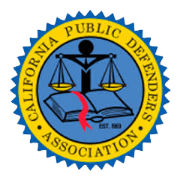
When it comes to defending yourself against a DUI charge, knowledge is more than just power—it’s your first line of defense. With the right strategies up your sleeve, navigating through the murky waters of a DUI case might seem less intimidating. Let’s shed light on top-notch DUI Defense Strategies to know in 2024 that have proven their worth time and again. Whether you’re facing charges for the first time or looking to refine your approach, understanding these tactics could be crucial.
Table Of Contents:
Common DUI Defense Strategies
If you’ve been charged with a DUI, it’s critical to understand the defenses available in your corner. Knowledge is power. Maneuvering the justice system can be daunting, but with insight into common DUI defenses and strategies, you could significantly strengthen your case. Some examples of ways DUI attorneys in Los Angeles build defense strategies include:
- Challenging the traffic stop.
- Questioning the field sobriety tests.
- Disputing the breath test results.
- Challenging the blood test.
- Arguing rising blood alcohol content.
Challenging the Legality of the DUI Stop
One of the key defenses in DUI cases revolves around challenging the reasonable suspicion or probable cause that led to a traffic stop. This defense aims to question whether the law enforcement officer had a valid reason to initiate the stop and subsequently investigate for impaired driving. Reasons an officer may lack probable cause include:
- Lack of reasonable suspicion.
- Improper probable cause.
- Illegal search and seizure.
- Miranda rights violations.
If it can be proven that the arrest or stop was conducted illegally, it can lead to a dismissal of the charges against you. An experienced DUI defense attorney will carefully analyze the details of your case to identify any potential violations of your rights.
Attacking the Accuracy of Field Sobriety Tests
Another common DUI defense strategy is to challenge the accuracy and validity of field sobriety tests (FSTs). These tests, such as the walk-and-turn or the one-leg stand, are often subjective and can be influenced by various factors unrelated to alcohol consumption. Reasons to challenge FSTs may include:
- Non-standardized tests.
- Officer’s subjective interpretation.
- Medical conditions affecting balance.
- Challenging the horizontal gaze nystagmus test.
A skilled attorney can argue that the results of these tests are unreliable and should not be used as evidence against you. They may also present evidence of medical conditions or other factors that could have impacted your performance on the tests.
Disputing Breath Test Results
Breath tests, such as the Breathalyzer, are commonly used to measure a driver’s blood alcohol content (BAC). However, these tests are not always accurate and can be challenged in court. Reasons to dispute breath test results include:
- Improper calibration of the breathalyzer.
- Mouth alcohol contamination.
- Failure to observe the 15-minute waiting period.
- Medical conditions affecting breath tests.
Your attorney may argue that the breath test results are unreliable due to improper administration, equipment malfunction, or other factors. They may also present evidence of medical conditions, such as acid reflux or diabetes, that could have affected the test results.
Challenging Blood Test Evidence
Blood tests are another method used to determine a driver’s BAC. While generally considered more accurate than breath tests, blood test evidence can still be challenged in court. Reasons to challenge blood test evidence include:
- Improper blood draw procedures.
- Contamination of the blood sample.
- Challenging the chain of custody.
- Questioning the accuracy of the blood test results.
Your attorney may argue that the blood test results are unreliable due to improper handling, storage, or analysis of the blood sample. They may also challenge the chain of custody to ensure that the sample tested actually belongs to you.
The Rising Blood Alcohol Defense
In some cases, your attorney may argue that your BAC was below the legal limit at the time of driving but increased between the time of the stop and the time of the test. This is known as the rising blood alcohol defense. Key points of the rising BAC defense include:
- Explaining the concept of rising BAC.
- Challenging the time of the alleged offense.
- Presenting evidence of alcohol consumption timeline.
Your attorney may present evidence of your alcohol consumption timeline to show that your BAC was rising at the time of the test but was below the legal limit when you were actually driving.
Medical Conditions and DUI Defenses
Certain medical conditions can impact the results of DUI tests or mimic the symptoms of alcohol impairment. Your attorney may argue that your medical condition, rather than alcohol consumption, was responsible for your alleged impairment. Medical conditions that may be used in DUI defenses include:
- Diabetes and hypoglycemia.
- Acid reflux and GERD.
- Auto-brewery syndrome.
- Ketosis from low-carb diets.
Your attorney may present medical records, expert testimony, or other evidence to support the argument that your medical condition impacted your behavior or test results.
Challenging the Arresting Officer’s Testimony
In some cases, your attorney may challenge the arresting officer’s testimony by pointing out inconsistencies or contradictions in their statements or reports. They may also present evidence that contradicts the officer’s observations. Strategies for challenging the arresting officer’s testimony include:
- Inconsistencies in the police report.
- Contradictions during cross-examination.
- Presenting expert testimony to counter the officer’s observations.
Your attorney may use cross-examination to highlight inconsistencies in the officer’s testimony or present expert witnesses to challenge the officer’s conclusions about your alleged impairment. These are just a few examples of defenses your attorney can use to help defend against DUI charges. To build your defense, our attorneys will need to examine all the details surrounding your stop, testing and arrest. In many cases, there are ways we can have the charges against you reduced to negligent driving or reckless driving.
Knowing the right DUI defense strategies can make a big difference. From questioning the legality of your stop to disputing test results and highlighting medical conditions, there’s a lot you can do to fight back. Let an experienced attorney dive into your case details; they might just find the key to reducing or even dismissing those charges.
Conclusion
In wrapping things up about DUI Defense Strategies, remember this isn’t about finding loopholes; it’s about ensuring justice is served correctly and fairly. These strategies aren’t magic spells but rather tools forged from expertise and experience designed to give you fighting chance in court. The path may seem daunting at first glance—but armed with proper knowledge and an adept legal team by your side, maneuvering through becomes not only possible but manageable too.





